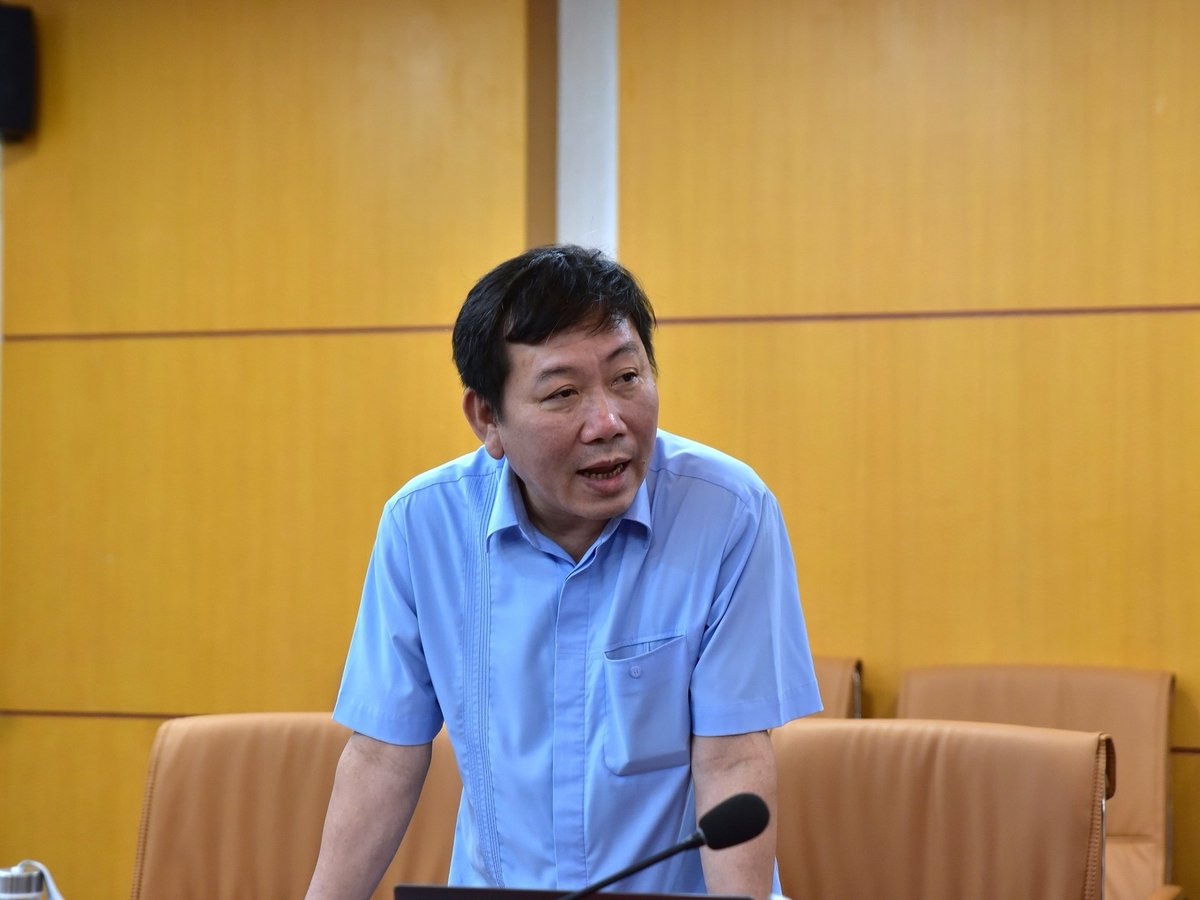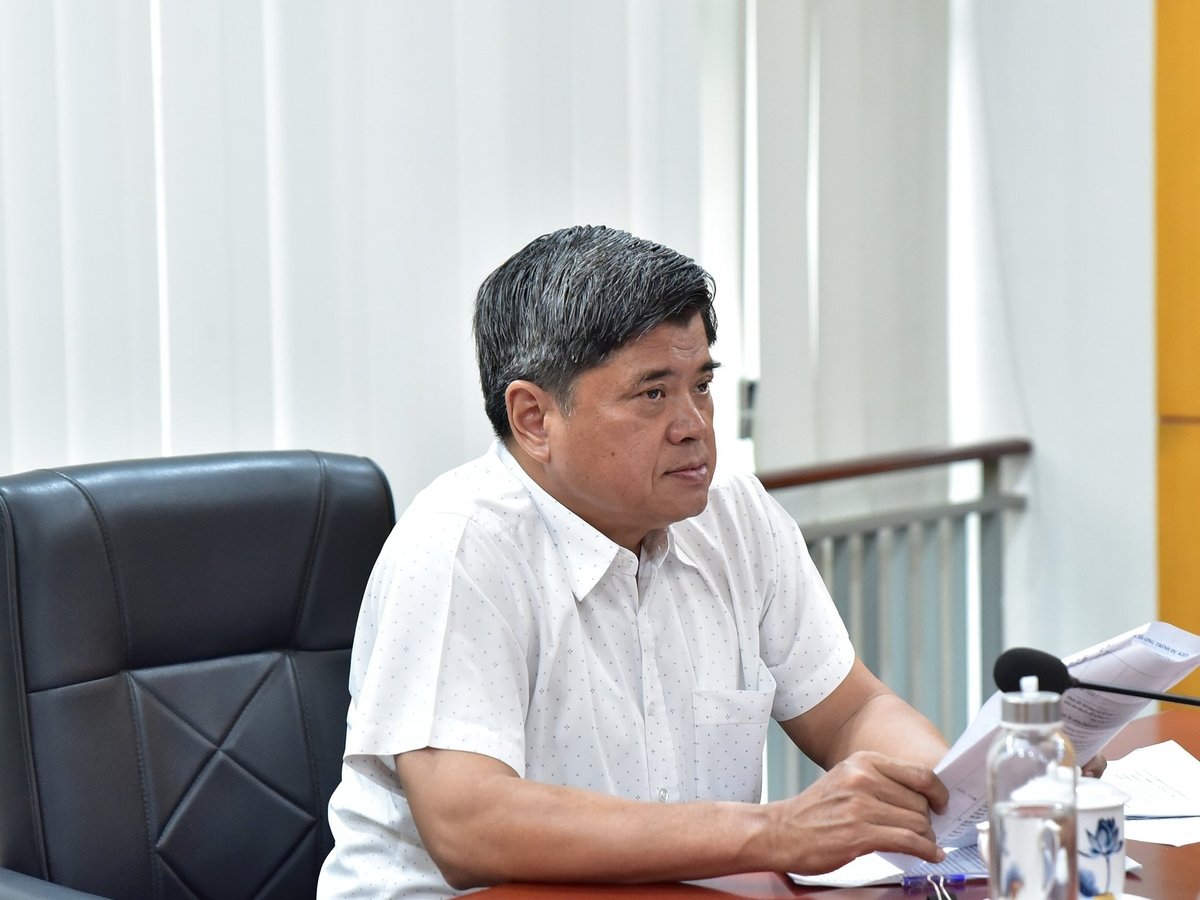December 30, 2025 | 21:58 GMT +7
December 30, 2025 | 21:58 GMT +7
Hotline: 0913.378.918
December 30, 2025 | 21:58 GMT +7
Hotline: 0913.378.918
On the morning of July 7, Deputy Minister Tran Thanh Nam chaired a meeting to prepare for a high-level interregional forum on sharing experiences related to the OCOP (One Commune One Product) model. This will be a ministerial-level event, featuring the participation of Vietnam’s Minister of Agriculture and Environment along with more than 14 ministers from African countries.
At the meeting, Dr. Nguyen Do Anh Tuan, General Director of the International Cooperation Department, stated: "With the strong support and interest from Mr. Qu Dongyu, Director-General of the Food and Agriculture Organization of the United Nations (FAO), during his visit to Vietnam in February 2025, the Ministry of Agriculture and Environment has agreed to collaborate with FAO to organize this high-level forum. The goal is to exchange experiences in developing the OCOP program between Vietnam and other countries around the world."

Dr. Nguyen Do Anh Tuan, General Director of the International Cooperation Department, spoke at the meeting. Photo: Kieu Chi.
According to the Director General, the Forum will focus on three main themes: sharing Vietnam’s experience in implementing the OCOP program; a ministerial-level discussion on how OCOP contributes to the transformation of agricultural and food systems toward sustainability and resilience; and a dialogue on strengthening the application of science, technology, and innovative initiatives for transforming agricultural and food systems.
The second discussion session is expected to create a space for sharing experiences and successful practices in developing the OCOP program. It aims to enhance market access, trade, and investment opportunities, as well as improve the nutritional value of specialty and traditional products.
In addition, on the sidelines of the Forum, Vietnamese leaders and Ministers from African countries will hold courtesy meetings.

Deputy Minister Tran Thanh Nam provided guidance on preparations for the Forum on July 15 and the field visit of the delegation of 14 African Ministers to Vietnam. Photo: Kieu Chi.
In his directive remarks, Deputy Minister Tran Thanh Nam stated: "The ministerial-level dialogue on food systems transformation and the OCOP program is a shared concern for both Asia and Africa. This Forum will be a valuable opportunity for countries across the two regions to learn from one another’s experiences. The current strategic orientation of the Ministry of Agriculture and Environment focuses on supporting the development of OCOP products, including trade promotion, product branding, and the application of science and technology."
The Deputy Minister also emphasized the importance of thoughtfully organizing the exhibition space at the Forum to reflect the unique cultural identity of traditional craft villages.
He assigned the Agricultural Trade Promotion Center (Agritrade) to coordinate the preparation of the product booths, ensuring their design and presentation align with the Forum’s objectives and vividly highlight the value of OCOP products.
Mr. Nguyen Song Ha, Assistant to the FAO Representative in Vietnam, agreed with the proposal to enhance the diversity and vibrancy of the OCOP booths, helping to create a visually engaging and appealing showcase for international delegates. The exhibition will feature OCOP products from Vietnam and African countries, with artisans participating and live cultural performances.
In conclusion, Deputy Minister Tran Thanh Nam tasked relevant units with conducting thorough field assessments and ensuring that all activities are professionally organized, effective, and safe for participating delegates.
The event will bring together 100 international delegates, including leaders and representatives from the Ministries of Agriculture of African and Asia-Pacific countries, as well as embassies of African nations.
On the Vietnamese side, participants will be representatives from the Ministry of Agriculture and Environment, the Ministry of Foreign Affairs, the Ministry of Finance, the Ministry of Industry and Trade, the Ministry of Culture, Sports and Tourism, the Ministry of Science and Technology, along with delegates from localities that are directly involved in implementing the OCOP program in provinces.
On July 16, the delegation of ministers will join a field visit to Ninh Binh province. The visit will include a tour of Sinh Duoc Cooperative - an OCOP model integrated with community-based tourism, operating along a value chain that connects material zones to final product manufacturing. The delegation will also visit Dai Long Production and Trading Joint Stock Company, the largest and first facility in the province specializing in the production of crispy rice.
Translated by Kieu Chi

(VAN) Located in three former provinces, Nam Dinh, Thai Binh, and Ninh Binh, and now in two provinces, Ninh Binh and Hung Yen, "Red River Delta" is the name of Vietnam's first interprovincial coastal wetland World Biosphere Reserve.
/2025/12/29/1046-1-210728_624.jpg)
(VAN) In 2025, Viet Nam recorded severe and extreme disasters, breaking multiple historical records and causing heavy losses in lives, property, and infrastructure nationwide.

(VAN) Applied technologies, water-saving irrigation is a strategic solution to promote climate-resilient agriculture and strengthen water security in the uplands.
/2025/12/29/3936-3-163422_251.jpg)
(VAN) Can Gio mangrove forest in particular and the entire Can Gio Mangrove Biosphere Reserve in general hold great potential for carbon credits.

(VAN) Chu Pah Rubber has announced its products that comply with the EU Deforestation Regulation (EUDR), affirming its commitment to sustainable production and product origin transparency.

(VAN) Deputy Director Nguyen Hoai Nam stated that a digital data platform will be developed with agricultural sector databases, utilizing AI to help farmers make informed decisions on 'watering correctly, sufficiently, and efficiently.’
/2025/12/29/4841-2-134224_777.jpg)
(VAN) From only about 10 individuals in 2009, the wild elephant population in Dong Nai has recovered to nearly 30 animals after more than 10 years.